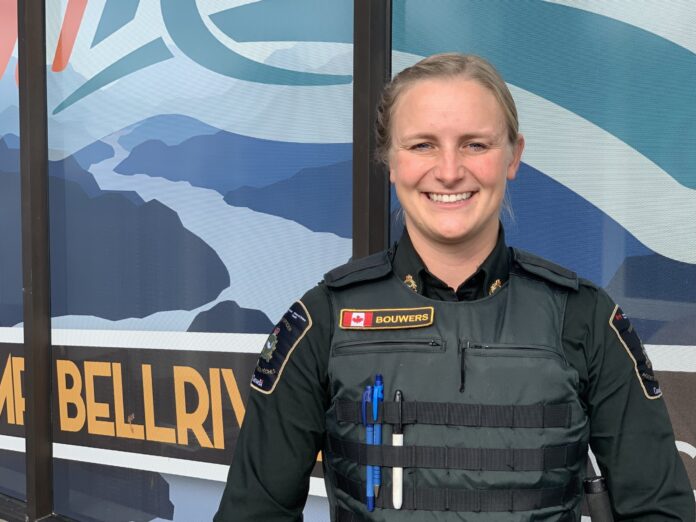A recent mission on the high seas will help scientists better understand BC salmon, and help fisheries managers better protect them.
DFO’s Jessica Bouwers led a team of seven fisheries officers for a month this summer during Operation North Pacific Guard, working with the Canadian and US Coast Guard to board and inspect fishing boats plying international waters. She says it was the first time Canada led the operation, which will provide valuable information for scientists and fisheries managers about BC fish stocks.
“We’re going out to see how much fishing pressure there is in certain areas, to see how much salmon we’re finding on board these vessels, to see what DNA we can gather and bring back and really create that whole overall database, because there’s so little information about what’s actually going on on the the high seas,” she says.
DNA samples collected at sea during the mission are already helping scientists at the Fisheries and Oceans Canada (DFO) research centre in Nanaimo. Bouwers says the data is helping them better track the movement of Canadian-origin fish. While scientists know a lot about the first and last years in the salmon lifecycle, the years they spend feeding and growing in the North Pacific remain largely a mystery. They also collected environmental data and water samples to better understand the high seas environment.
The operation was managed from aboard DFO’s patrol vessel Atlantic Condor and supported by aircraft from Japan.
They inspected 400 vessels personally and by air and discovered more than 3,000 illegally possessed or stored shark fins, among 58 other violations. They are now working with the appropriate nations to pursue investigations and charges.
Bouwers says they also took time to speak with workers aboard the ships, to make sure they were being treated well and paid fairly. She says the quality of life at sea can be terrible for workers. Many come from southeast Asia and sign on because it’s the only way they can make enough money to support their families. Communication on the high seas is spotty, and sometimes workers can’t call home for months. Some stay at sea for months or even years at a time – Bouwers says she met one worker who had been at sea for three years straight.
This patrol was supported by funding from the Pacific Salmon Strategy Initiative (PSSI), which aims to enhance conservation, protection and enforcement efforts in high-risk areas for Canada’s Pacific salmon stocks.
Bouwers says the mission shows even in the digital age, illegal fishing still goes largely undetected in the North Pacific. Globally, one of every five fish sold comes from illegal fishing.
She says Canada has a good reputation among Pacific fishing countries and hopes in the long term she and other Canadians at sea can help everyone improve fishing practices for the environment, and for their workers.




